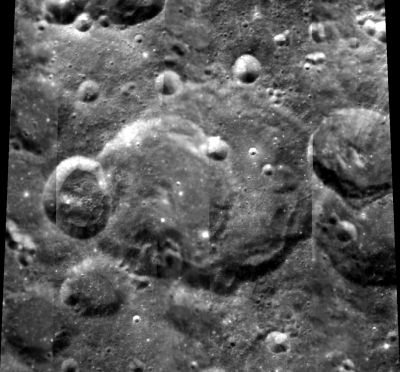Perrine
Contents
Perrine
|
Lat: 42.5°N, Long: 127.8°W, Diam: 86 km, Depth: km, Rükl: (farside), [/Stratigraphy pre-Nectarian] |
Table of Contents
[#Perrine Perrine]
[#Perrine-Images Images]
[#Perrine-Maps Maps]
[#Perrine-Description Description]
[#Perrine-Description: Wikipedia Description: Wikipedia]
[#Perrine-Additional Information Additional Information]
[#Perrine-Nomenclature Nomenclature]
[#Perrine-LROC Articles LROC Articles]
[#Perrine-Bibliography Bibliography]
[#Perrine-Charles D. Perrine in the Sourcebook Project (William R. Corliss) Charles D. Perrine in the Sourcebook Project (William R. Corliss)]

Clementine
Images
LPOD Photo Gallery Lunar Orbiter Images
Maps
([/LAC%20zone LAC zone] 35A3) USGS Digital Atlas PDF
Description
Description: Wikipedia
Additional Information
- Perrine E mapped as [/Stratigraphy Copernican] by USGS.
Nomenclature
Charles Dillon Perrine (July 28, 1867–June 21, 1951) was an American-Argentine astronomer. He discovered two moons of Jupiter, today known as Himalia (in 1904) and Elara (in 1905). They were simply designated "Jupiter VI" and "Jupiter VII" and were not given their present names until 1975.
LROC Articles
Minty Fresh (a tiny ray-craterlet west of Perrine, east of Quetelet) (in the centre of the triangle Perrine-Quetelet-Thiel).
Bibliography
Charles D. Perrine in the Sourcebook Project (William R. Corliss)
In Mysterious Universe, a handbook of astronomical anomalies (1979) :
- Page 67: The Closing of a Famous Astronomical Problem (W.W.Campbell, Popular Science Monthly, 1909). About the curious observations of the so-called intramercurial planet, which was called Vulcan.
- Page 511: A Luminous Object seen on May 4, 1916 (C.D.Perrine, Astronomical Society of the Pacific - Publications, 1916).
- Page 536: A Remarkable Coincidence (W.W.Campbell, Science, 1917). The case of a certain comet which was (or could have been) discovered by both Perrine and Lamp (independently).
This page has been edited 1 times. The last modification was made by - tychocrater tychocrater on Jun 13, 2009 3:24 pm - afx3u2